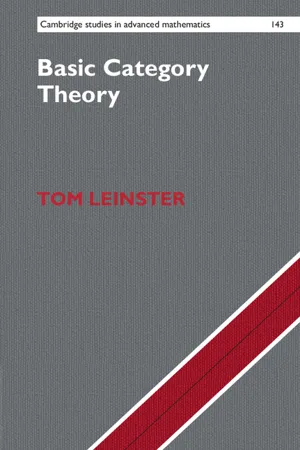Basic Category Theory
About this book
At the heart of this short introduction to category theory is the idea of a universal property, important throughout mathematics. After an introductory chapter giving the basic definitions, separate chapters explain three ways of expressing universal properties: via adjoint functors, representable functors, and limits. A final chapter ties all three together. The book is suitable for use in courses or for independent study. Assuming relatively little mathematical background, it is ideal for beginning graduate students or advanced undergraduates learning category theory for the first time. For each new categorical concept, a generous supply of examples is provided, taken from different parts of mathematics. At points where the leap in abstraction is particularly great (such as the Yoneda lemma), the reader will find careful and extensive explanations. Copious exercises are included.
Tools to learn more effectively

Saving Books

Keyword Search

Annotating Text

Listen to it instead
Information
Table of contents
- Cover
- Half Title
- Series Page
- Title
- Copyright
- Contents
- Note to the reader
- Introduction
- 1 Categories, functors and natural transformations
- 2 Adjoints
- 3 Interlude on sets
- 4 Representables
- 5 Limits
- 6 Adjoints, representables and limits
- Appendix Proof of the general adjoint functor theorem
- Further reading
- Index of notation
- Index
Frequently asked questions
- Essential is ideal for learners and professionals who enjoy exploring a wide range of subjects. Access the Essential Library with 800,000+ trusted titles and best-sellers across business, personal growth, and the humanities. Includes unlimited reading time and Standard Read Aloud voice.
- Complete: Perfect for advanced learners and researchers needing full, unrestricted access. Unlock 1.4M+ books across hundreds of subjects, including academic and specialized titles. The Complete Plan also includes advanced features like Premium Read Aloud and Research Assistant.
Please note we cannot support devices running on iOS 13 and Android 7 or earlier. Learn more about using the app
